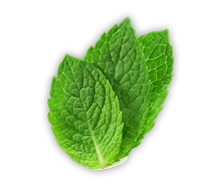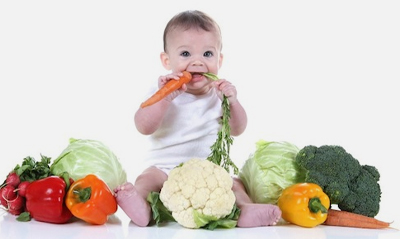
Organic foods are the ones that are chemical-free and grown using no
pesticides or chemical fertilizers. Unlike conventional foods, during the
production of organic fruits and vegetables, no chemicals are used to increase
their size or to ripe them before time. However, it is difficult to distinguish
between common foods and organic foods as they look similar in colour and
shape. Today, in this blog we will tell you how to identify organic food and
the health benefits of organic food for the elderly.
Organic foods are the ones that are chemical-free and grown using no
pesticides or chemical fertilizers. Unlike conventional foods, during the
production of organic fruits and vegetables, no chemicals are used to increase
their size or to ripe them before time. However, it is difficult to distinguish
between common foods and organic foods as they look similar in colour and
shape. Today, in this blog we will tell you how to identify organic food and
the health benefits of organic food for the elderly.
How To Identify Organic Food
All kinds of fruits and vegetables are available in the market, which looks
very fresh, but this does not mean that they are organic. Organic food items
are certified separately. These are affixed or printed with certified stickers.
Their taste is also slightly different from normal food. The smell of organic
food is stronger than that of normal food.
Organic Versus Non-Organic Food
Organic food has more nutrients in comparison to non-organic foods. It is
because non-organic food loses its nutrient during the processing phase.
Natural fertilizers are used for organic foods such as cow manure. On the other
hand, non-organic food is fertilized with chemicals. Non-organic foods that
were grown on traditional farms use human faeces as fertilizers. This practice,
however, is not allowed in organic farms.
Organic food does not contain hormones, while non-organic foods contain
hormones, hormones are injected for animals to speed up their growth. Food
poisoning is more likely to occur with non-organic foods than organic.
What is special about organic food?
Organic food is much more expensive than normal. In such a situation, the
question arises that when you choose organic food over other food, what do you
get different or extra? Are organic foods beneficial for health? Let us discuss
some things and try to find out the answers to these questions.
Benefits of growing organic food
Organic food, indeed, is better than the artificially grown products. With
so many benefits of eating organic food, there are some significant benefits of
growing it. Here are the interesting benefits of growing organic food!
Organic foods provide excessive nutrition
Organically grown fruits, vegetables and grains have the most nutrients.
Researchers at IFOAM tested fruits grown from organic farms and fruits grown
from normal farming. This study concluded that organically grown food has many
times more nutrition.
Organic food is without chemical
From sowing seeds to harvesting, many pesticides and chemical crops are
applied. Substances poisonous to insects are also dangerous for humans. In such
a situation, whatever fruits and vegetables we eat, they are ripened with
chemicals. There is no chemical in organic farming, so fruits and vegetables
give only nutrition, not any kind of chemical. This protects seniors citizens
from the diseases that arise from the side effects of chemicals.
Ensures soil fertilizer strength for future
Any plant takes nourishment from the soil to grow. The soil takes time to
replenish its fertility. When chemical fertilizers are put in that soil, the
soil starts becoming barren. Sadly in the last few decades, fertile soil has
become barren, due to the excessive use of chemicals. If it continues the same
way, farming will become impossible in future. On the other hand, organic
farming uses dung manure and earthworm manure to make the soil more fertile.
Due to which nutrients increase in the soil. Organic adoption is very important
to save the future.
Environment protection
According to the report of the Environmental Protection Agency, the use of
chemicals in agriculture is not only dangerous for the elderly but also causes
great harm to nature. Organisms living in chemical soil spread the land
pollution by destroying the animals and when these chemicals percolate to the
reservoirs, they also spread water pollution. Organic farming is a necessity
not only for us, or the elders, but also for nature.
Environmental benefits of organic food
In recent years, the trend of organic food is becoming increasingly popular.
Sales of organic food manufacturers have steadily increased during the past
decade, although organic food prices are inherently higher. But the best part
is that food produced through organic farming is completely free from
chemicals, drugs and growth hormones. Moreover, it is an ecologically balanced
approach. Here are some common environment talk benefits of organic food:
- Organic
food strives for crop rotation resources, which promotes ecological
balance and preserves biodiversity. The use of pesticides and fertilizers
is considered harmful to the environment as well as health.
- Organic
food irradiation is not processed using an industrial solvent or synthetic
food additives, hence it is environment friendly.
- Organic food
contains small amounts of pesticides. Whatever food, grains, fruits,
vegetables, etc. we eat, the pesticide residues remain on it, but, in
organic food, it is in small quantities.
- Organic
farming is beneficial for the environment because it causes less pollution,
conserves water, increases soil fertility and consumes less energy.
- Animals
that are reared organically are not given any antibiotics, growth hormones
or harmful products. This not only keeps the animals healthy but also the
products they get are healthier than other products.



